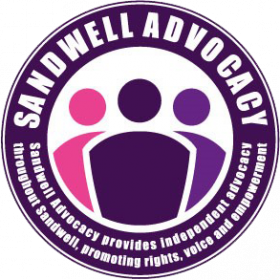Advocacy
Advocacy is not about acting in what is perceived to be the person’s best interest, but is about standing with a person to ensure they are able to say and try to get what they want and need.
Advocacy is part of everyday life. At some point in our lives most of us will have needed the support of someone we trust to help us speak up for ourselves.
Some people find that advocacy helps when they feel they are not being listened to, or are not getting what they need and would like some support. Anyone may need advocacy at some time in his or her life, but it becomes especially relevant where:
- People are being treated unfairly as a result of other people’s prejudices, or their own vulnerability, or both.
- People feel they have no family, friends or anyone in the wider community whom they can turn to for support.
- Family and/or friends may be part of the problem.
- People may have professional paid workers involved in their lives who are not providing services which take into account their needs and/or requirements
Building Positive Relationships
Advocacy is a relationship between the person, group or organisation providing advocacy – the advocate, and the person who is being supported – the partner. A lot of advocacy schemes are reluctant to refer to individuals they work with as clients or service users believing them to be terms used by providers of services, often with negative connotations for those that have accessed them.
“I have someone who I could trust to speak to and I knew if I ever needed help they would be there for me. Also I could express my feelings and explain what I need help with. I liked that they listened to me and I could tell them anything therefore I feel comfortable expressing myself.”


